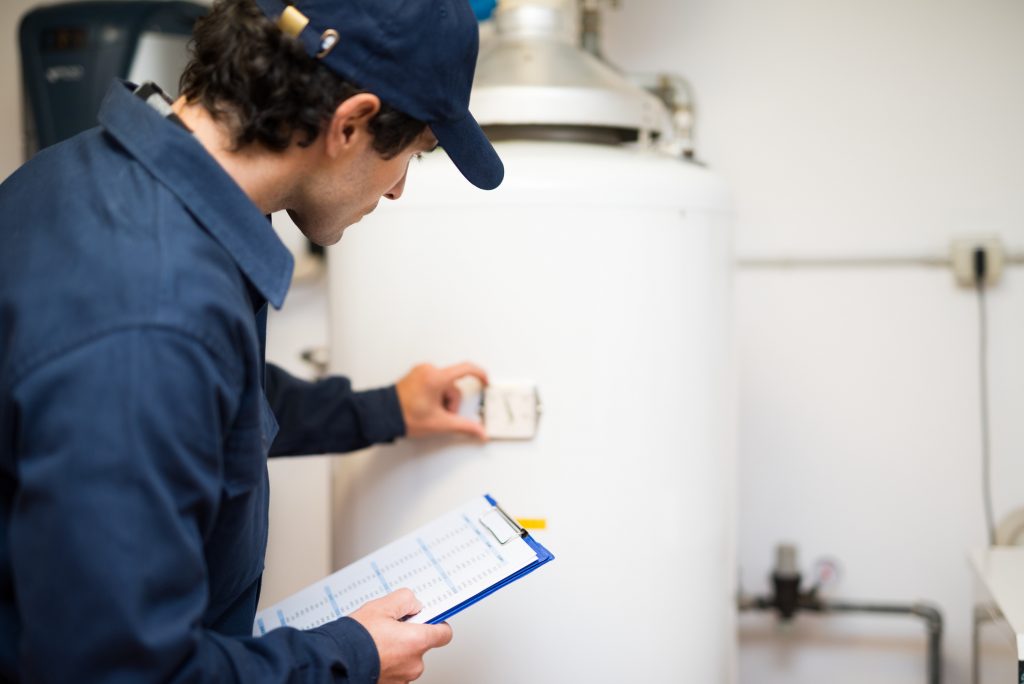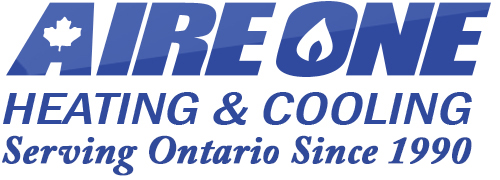
Over the years, Aire One has taken many emergency calls regarding broken boilers. Sometimes nothing could have been done to prevent the problem, but sometimes homeowners can save themselves the stress of an emergency simply by performing annual boiler maintenance. To save you the hassle of an emergency — follow our tips to maintain your boiler and ensure it is functioning properly.
Check Your Boiler Water Levels
A boiler needs full water capacity to meet your demand for hot water to be as efficient as possible. If the water level is too low the boiler will consume too much energy and may become worn-down or damaged. We recommend starting your boiler maintenance routine by checking its water levels. If your water level is too low perform some preliminary troubleshooting.
Examine Your Boiler for Leaks and Cracks
Metal or PVC pipes connect the boilers electrical and water supply. Check the pressure gauge to see if these pipes are operating correctly. Make sure to check the joints are secure and if there are signs of leakage, holes, or cracks around the system. If your water level is low and you don’t find a problem externally then it’s possible the pipes are blocked on the inside (potentially caused by lime build-up). If this is the case we recommend calling a boiler repair professional.
When examining the boiler, carefully run a damp cloth over the tank and pipes to remove dust and debris. Not only does this make the boiler easier to inspect and maintain, it can also help keep the unit from degrading.
Flush Your Boiler
Flushing should always be part of your boiler maintenance routine. It makes it easier to detect a potential new problem or to locate the source of an issue. To start a boiler flush, locate the drain valve so you can empty the contents in a safe way. Pull down and close the valve that brings water into the boiler.
Once the boiler has drained completely you can allow water back in. Do it slowly, so you can hear as the water progresses through the system. Also, if you allow too much cold water to rush into the boiler, it can cause potential damage. As it fills up, make sure you take note of unusual smells or sounds. Don’t forget to close the drain valve when you’re done.
Is It In Your Water?
Hard water can cause lime and scale build-up in your boiler. This can reduce the rate of flow and degrade the boiler over time. Periodically, your boiler should be chemically de-scaled. Determining how often to perform a de-scaling should be based on the level of water hardness. If your water contains high levels of calcium and magnesium, it’s recommended to perform one periodically.
While you can do it yourself, it is dangerous to use vinegar, CLR or another chemical de-scaler. If your water is very hard or you’ve let the build-up develop for a number of years, you may need a professional’s help to effectively remove it.
If you encounter a problem with your boiler or need help to maintain it, contact Aire One. Our team of boiler repair professionals are always ready to help keep your boiler in good running order.

